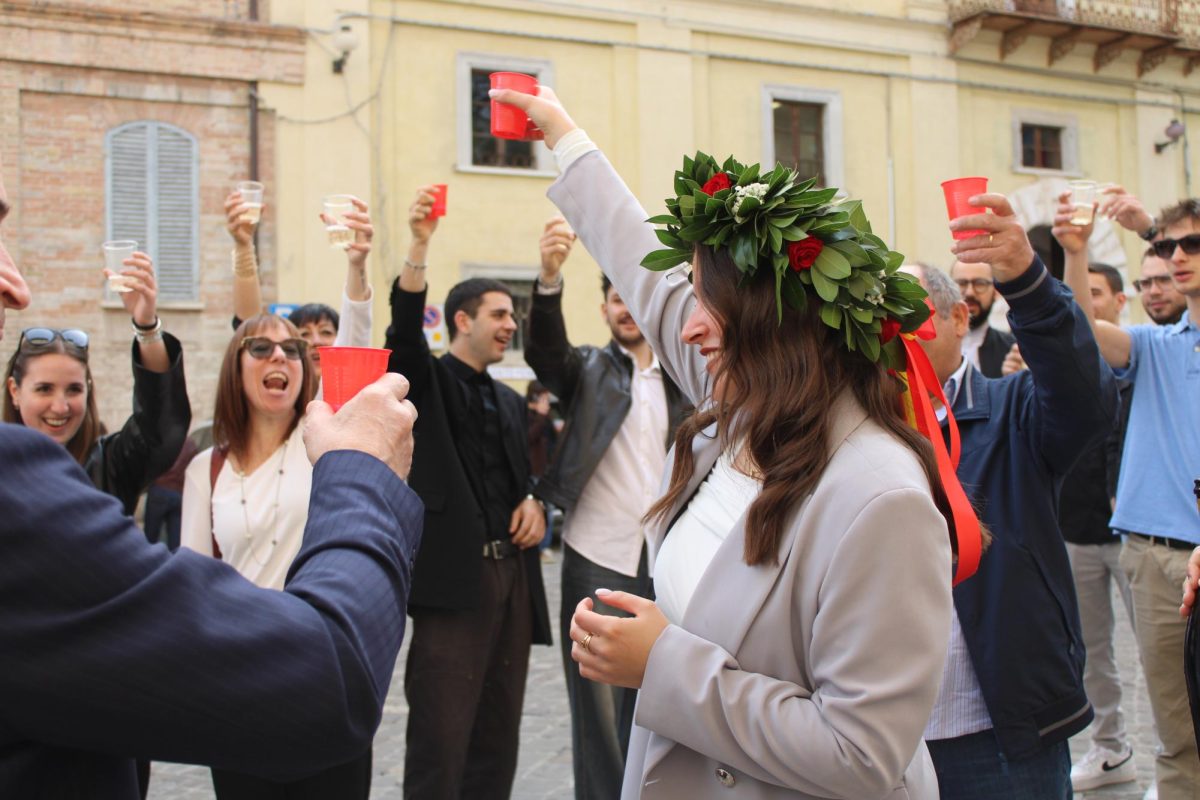Activism is great, but it isn’t worth dying for, is it?
October 13, 1999
Despite the best efforts to the contrary, the September 29th Movement is dead. It went a certain distance and then it stopped. Hence the name movement.
Although it started out strong enough way back in ’95, the drive to rename Catt Hall petered out. Because of that failure, a number of people are under the misconception that students are apathetic, and activism is dead.
That is wrong because students do care. They just don’t care about what all the self-appointed activist leaders think they should care about.
For a variety of reasons, the Movement died. Maybe it was because the founders finally graduated after being in college longer than Mr. Blutarsky of Animal House fame, or that the administration realized there was no point in dealing with the movement.
But probably the biggest reason was that their voice was drowned out by a massive silence. The vast majority of the student body either did not care or sided with the university.
Since we expected The Man to stand tall, there was no point in making noise. We knew the administration wouldn’t bow before four guys with a bullhorn.
Besides, the students were already fed up with the movement. They had their chance when the federal government brought in a mediator, and they blew it.
Instead of hiding their tape recorder, they decided to set it on the table in clear view of everyone and then act surprised when the university and the mediator objected.
Their intractable attitudes had even the mediator throw up his hands and walk out.
After that, the students knew enough to ignore the movement. Like a child pouting in the store, the movement gave up when they realized no one was listening.
There are two lessons we can take from that incident. The first is to always hide your tape recorder, because legalities are worthless after the tapes are out. Linda Tripp knew that.
The second is that students must actually have a vested interest in the issue at hand. Renaming Catt Hall wasn’t a top priority for the rest of us. We felt her benefits far outweighed the negatives.
The issue of student activism is annoying because every year people try and tell you that this is your time to shine, that your voice should be heard and that this is what college is really about.
Yeah, right.
College is about getting an education. After you graduate, you can get married, settle down and have 2.3 kids and then retire to play golf in Florida. That is the meaning of life.
Student activism arises just because students are bored and have little to do with their time besides drink and lead sinful lives.
Sometimes movements can incorporate both principles as they did in the ’60s and ’70s, but lately the protest groups have been based around boring issues such as not smoking or eating meat.
Neither group gets very far because they aren’t much fun to be around, and most adults consider student activists nothing but trouble-makers.
Despite this, many student activist groups have made a go of worthy causes.
In 1979, Iranian students protesting the Shah of Iran stormed the American embassy in Tehran and took sixty-six people hostage. After being held for more than a year, the hostages were released in exchange for $8 billion in Iranian assets frozen in U.S. banks.
A student group could build their own college with that kind of money!
Though that student protest was part of a larger religious fundamentalist revolution, do not ignore the events that happened.
Just last year, Indonesian college students led protests in downtown Jakarta against the military regime of President Suharto. Numbering more than 20,000 strong, the pro-democracy mob set buildings on fire, looted shops and attacked police.
Although at the core it is a protest in favor of democracy, rioters managed to branch out into violence aimed at ethnic minorities (Caller-Times, 11/15/98).
That upheaval did little to lift the economic depression of the region, but it did provide a valuable outlet for the frustrations of college students.
There were down sides to both student demonstrations, namely that people died.
Sometimes it was protesters, other times innocent civilians. In those recent protests in Jakarta, at least 14 people died as a result of the violence.
This underscores a valuable point for any would-be activist: don’t mess with the military unless you are willing to die for your cause.
In every instance where a student protest becomes politically dangerous, the military is usually called out.
The Chinese government illustrated the futility of trying to stop a tank with a human body during the Tiannanmen Square uprisings a decade ago.
The United States hasn’t seen anything like that since the National Guard shot up a few protesters at Kent State in 1970.
Since most students are not willing to risk their lives for most causes, or even their country, any protest that is started should be mindful of the risks for violence.
Since we all know that DPS is impotent without their parking tickets, perhaps our university is the best place to demonstrate at.
As long as you don’t park your car illegally you should be fine, though after quiet hours you may face a noise violation.
The question then asked is what makes something a worthy cause. What could possibly motivate students to action?
Aaron Woell is a senior in political science from Bolingbrook, Ill. He demands you get off your lazy ass.
















